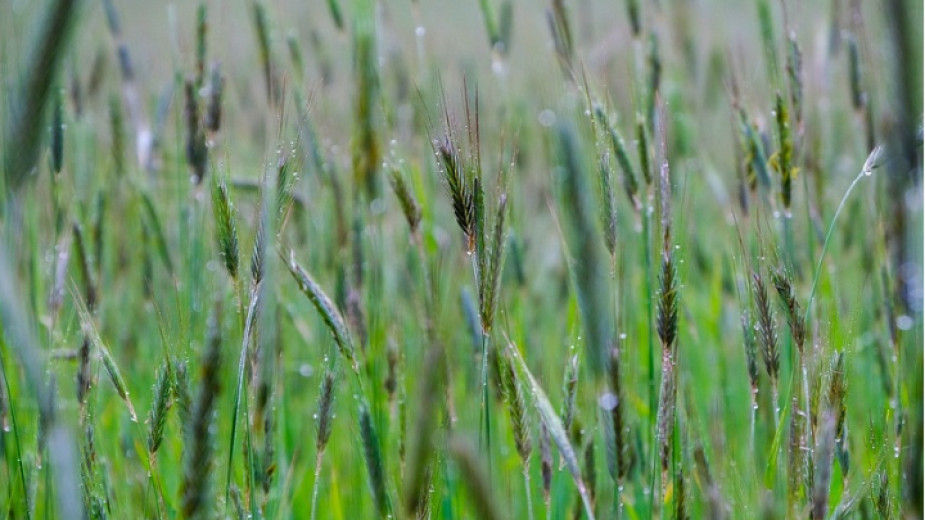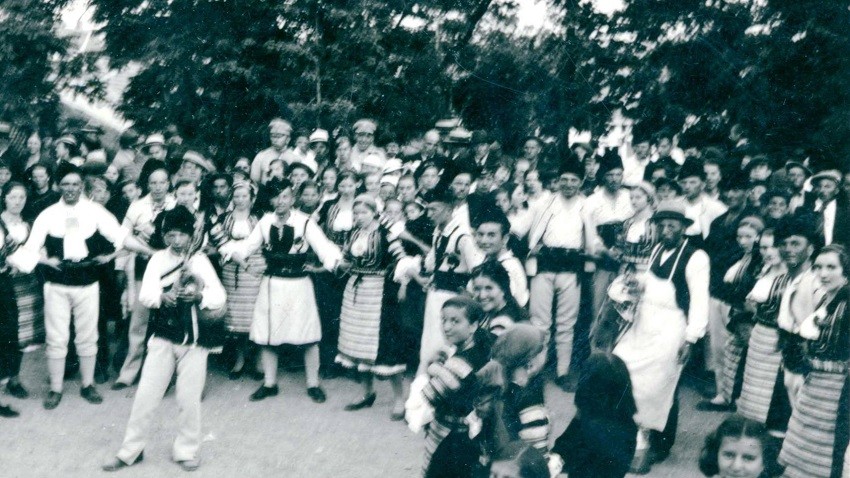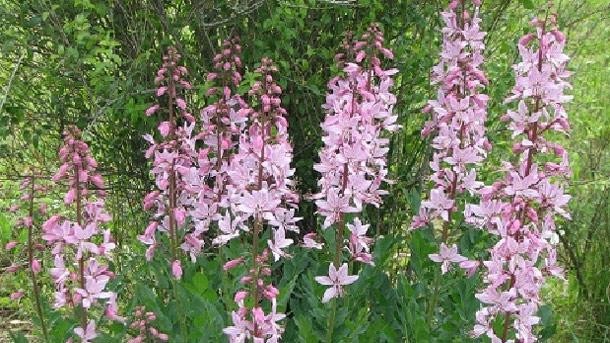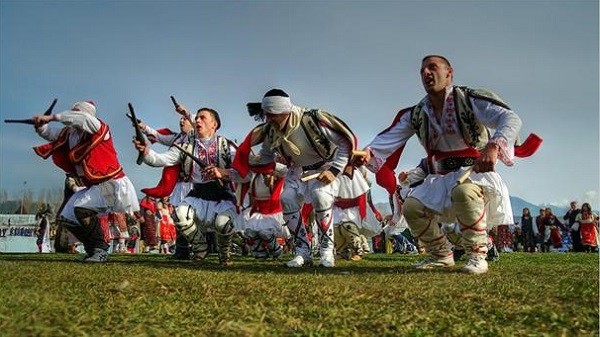
"Spasovden" is the popular name of the Feast of the Ascension, which the Orthodox Church celebrates on the fortieth day after Easter. In Bulgarian folklore traditions, the holiday is associated primarily with the belief that on Thursday before Easter the souls of the dead descend to earth before returning back on Spasovden. That is why one of the several Soul Saturdays is marked on Saturday after Ascension.

On this day, various folk rituals were performed in the past, as they were related to ensuring health, fertility, and protection of the crops from drought and hail. On Spasovden there are also customs focused on marriage.
 Nymphs (samodivi) – mythological creatures that could harm man, but at the same time could save him of incurable diseases are said to come out on the holiday, preparing for Nymphs' Sunday (Samodivska Nedelya), when they will "sow" their dew over the fields. They do this on Spasovden decorated with burning bush, which is their favourite herb and is picked in the night before the holiday. It is believed that mermaids pick only the tip of the medicinal plant.To this day, in some places in Bulgaria people roll in the morning dew before sunrise, believing this would bring them health.
Nymphs (samodivi) – mythological creatures that could harm man, but at the same time could save him of incurable diseases are said to come out on the holiday, preparing for Nymphs' Sunday (Samodivska Nedelya), when they will "sow" their dew over the fields. They do this on Spasovden decorated with burning bush, which is their favourite herb and is picked in the night before the holiday. It is believed that mermaids pick only the tip of the medicinal plant.To this day, in some places in Bulgaria people roll in the morning dew before sunrise, believing this would bring them health.
 During the week, called “Rusalska”, the “Rusaliy” also perform their folk rituals. These are male groups always with an odd number of participants and their guide is called “vatafin.” The decorate their hats with all kinds of herbs and carry sticks of hazel, maple or dogwood – medicinal trees with magical power. The groups go around villages all week and treat people from diseases caused by mermaids or "samodiva". They do it with a special ritual dance around the patient. Arranged in a circle, the group dances to music accompanied by a gradual acceleration of the tempo, before reaching an ecstatic state. When the climax is reached, the vatafin breaks a pot of healing liquid and the patient gets up and runs away. His or her place is taken by one of the members of the group and so the disease is banished. After completing the healing rituals, the boys visit the church to purify themselves and then return to their normal way of life. These rituals are considered to be a legacy of ancient times.
During the week, called “Rusalska”, the “Rusaliy” also perform their folk rituals. These are male groups always with an odd number of participants and their guide is called “vatafin.” The decorate their hats with all kinds of herbs and carry sticks of hazel, maple or dogwood – medicinal trees with magical power. The groups go around villages all week and treat people from diseases caused by mermaids or "samodiva". They do it with a special ritual dance around the patient. Arranged in a circle, the group dances to music accompanied by a gradual acceleration of the tempo, before reaching an ecstatic state. When the climax is reached, the vatafin breaks a pot of healing liquid and the patient gets up and runs away. His or her place is taken by one of the members of the group and so the disease is banished. After completing the healing rituals, the boys visit the church to purify themselves and then return to their normal way of life. These rituals are considered to be a legacy of ancient times.
On the Feast of Ascension everyone who bears the name Spas, Spaska, Spasimira, Sotir and others celebrate.
More about the traditions of the holiday and the folk songs dedicated to this day can be found HERE.
English: Alexander Markov
Photos: BNR/archive and @DrzavenArhivPernikThe second annual Bean and Sausage Festival promises to be an unforgettable celebration of flavour and folklore in Zhitnitsa , a village in southern Bulgaria. On 7 September, the grounds of the local equestrian centre will host food lovers..
The Regional Open-Air Ethnographic Museum "Etar" was established as a center for the study of the traditional culture of the Balkan Range people. Today, this unique site near Gabrovo serves as a place where customs and traditions from the Bulgarian..
From today until August 24, the 15th Folklore Costume Festival Zheravna 2025 is taking place in the Dobromeritsa area. Over 30 kaba bagpipers will kick off the event (8:00 p.m.), which every year gathers thousands of visitors dressed in..

+359 2 9336 661
